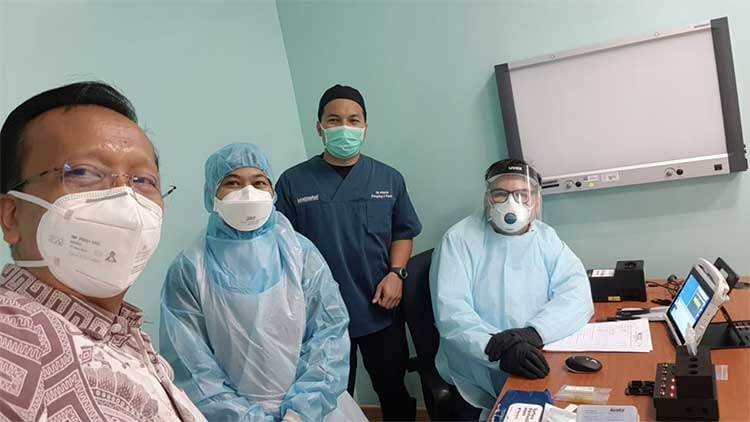Alcolizer Technology, a leading Australian manufacturer of diagnostic and testing solutions, has obtained positive results from live field trials from its highly sensitive, cost-effective rapid antigen testing device for SARS-CoV-2 (COVID-19).

The Virulizer rapid antigen testing device was developed in collaboration with the University of Technology Sydney.
The SARS-CoV-2 Antigen Study took place at the University Hospital, Sultan Ahmad Shah Medical Centre, Pahang Malaysia.
The antigen test can detect levels only previously achieved by PCR tests and was at least 1000x more sensitive than other commercially available antigen test kits on the market.
Live trials are a crucial component of our commercialisation strategy, and Alcolizer with support from the Advanced Manufacturing Growth Centre and the Malaysian Investment Development Authority saw the potential to conduct clinical trials in Malaysia where an Emergency Use Pathway for medical devices is in place,” Roger Hunt, General Manager of Alcolizer, said.
“What is exceptional about Virulizer is its non-invasive capability to detect COVID-19 in under 10 minutes. Globally, antigen and PCR detection testing is a crowded and competitive space but there is still great demand to deliver a solution with the same accuracy as PCR, faster and cheaper, without the traumatic experience,”
Mr Hunt said Virulizer can detect the virus in patients who are asymptomatic or considered ‘at the point of risk’, the virus collected from a saliva sample is deactivated at the collection point to produce onsite results in under ten minutes.
“The clinical study confirmed our in-house results – that we have an exceptionally fast and sensitive platform. The platform can be modified to detect a range of infectious agents, proteins and metabolites at concentrations previously only possible using expensive clinical instruments,” commented Dr Murdo Black, Chief Scientist of Alcolizer. “
Having received close to $2 million in support from the Federal Government, Alcolizer is gearing up for production rollout in mid 2022.
Manufacturing from its robotic facility in Balcatta it plans to make the iStrip system available to initial customers where there is an emergency use authorisation. An Australian clinical trial is set to commence with New South Wales Health in early 2022.




